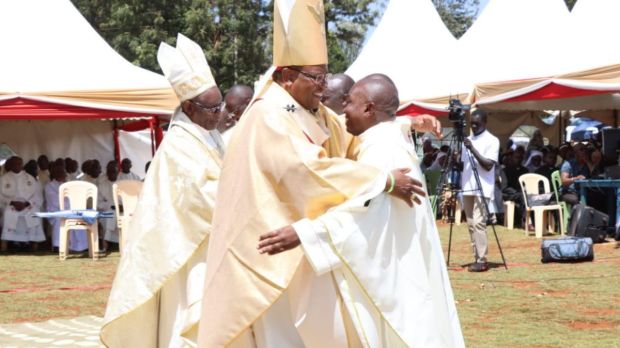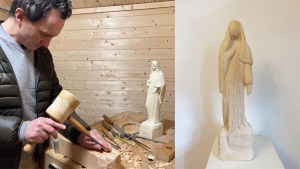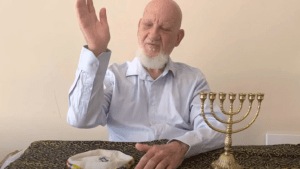“The ordination of the first-ever blind Catholic priest in Kenya will help bring a high opinion of the abilities and capacity of persons living with disabilities,” said Archbishop Anthony Muheria of the archdiocese of Nyeri, Kenya, to ACI Africa after celebrating the ordination Mass of Father Michael Mithamo King’ori on Saturday, January 14, 2023. Fr. King’ori became blind while serving as a deacon.
“Disability is not inability”
Fr. Michael was ordained a priest along with five other deacons during a Mass celebrated on the grounds of St. John Bosco Primary School in Kiamuiru, located 100 miles north of the capital, Nairobi. In addition to the archbishop, the Mass was attended by the archbishop emeritus of Nyeri, Peter Kairu, as well as clergy serving in the archdiocese of Kenya, men and women in religious life, and of course many lay people.
In his words to ACI Africa, Bishop Anthony Muheria spoke of the symbolism of the ordination. “This new priest, Fr. Michael, will help us to appreciate, in a very new way, the capacity, the ‘enabledness’ of people who may have a deficiency of ability because of situations.” Indeed, he goes on to say, his ordination “is a reason for great joy because in spite of his limitation, in spite of the hurdles he has had to go through, he has come out to give evidence and testimony that disability is not a hindrance to answer God’s call, that disability is not inability.” On the contrary, people living with particular disabilities have the capacity to “develop new other gifts” and can “enrich our society.”
Dignity for all
The archbishop used the occasion of this ordination to send a special message to people with disabilities and their families, who are poorly supported in this East African country of 48 million people. He made an appeal through ACI Africa:
“We in the church, you in the parish, at least take this challenge. At least let us visit the homes of families with disabilities, and the schools of children with disability regularly to help, not just to give food, but to help improve infrastructure, to walk with them, to clean.” He concludes: “Let us be there because Christ calls us to reach out to our brothers and sisters.”



